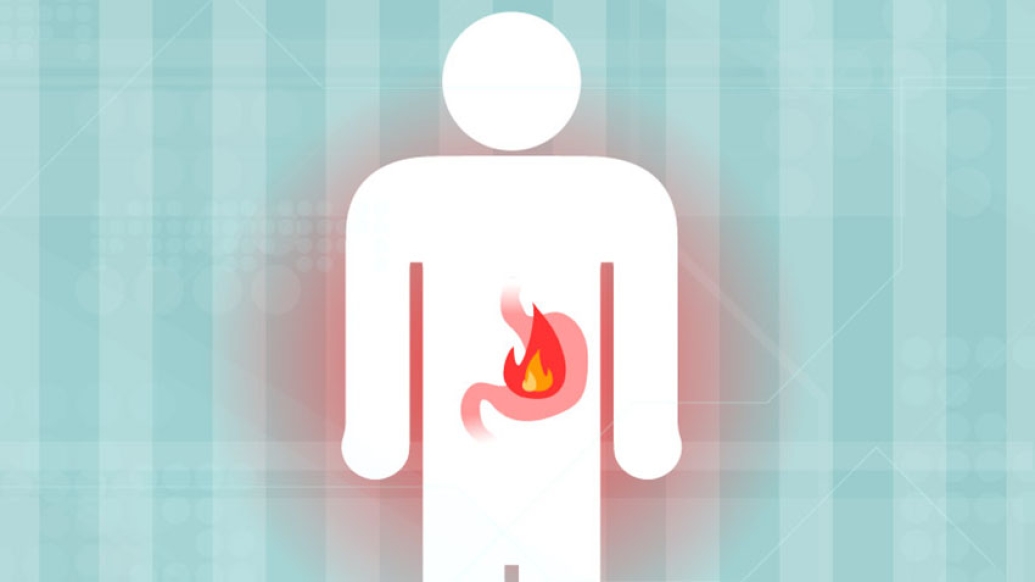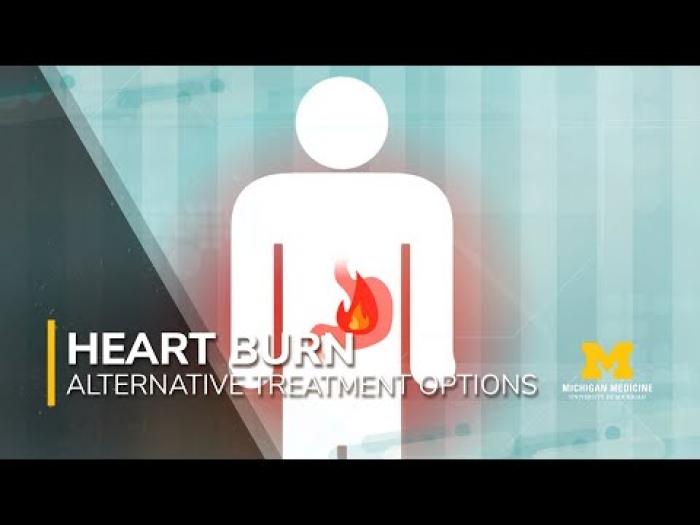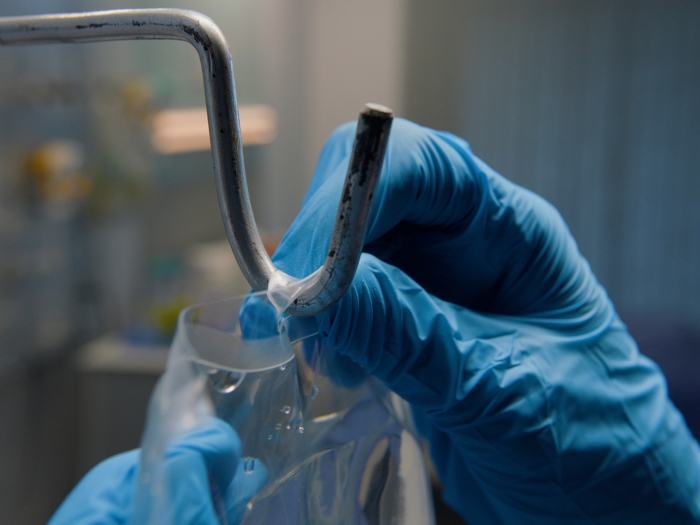A Michigan Medicine gastroenterologist discusses treatment options and holiday-related tips for individuals impacted by heartburn, including those used to taking Zantac, or ranitidine, for relief.
5:00 AM
Author |

You have roughly 30 minutes to scarf down your lunch before your next engagement. It's a busy day, but you need the fuel. You instinctively order your favorite sandwich from a local café, even though you know you'll end up loving it more than it loves you.
Moments later, you feel it coming: The galling burn that starts in your stomach and shoots its way up your esophagus. Heartburn, the uncomfortable condition that affects roughly 20% of Americans on a daily basis, rears its ugly head.
Michigan Medicine's William Chey, M.D., a gastroenterologist and professor of medicine and nutrition sciences, is an expert when it comes to treating the burn. With the holidays on the horizon, he sat down with Michigan Health to discuss the condition's many legs.
What are some of the over-the-counter drugs available for treating heartburn?
When it comes to treating heartburn and acid reflux, there are a lot of choices out there. And this can be overwhelming as a patient. As you walk down the digestive health aisle at your local drug store, for example, you'll find antacids and H2 blockers. Within each of these categories, there are even more choices: calcium antacids, magnesium antacids, ranitidine, famotidine, nizatidine and cimetidine.
LISTEN UP: Add the new Michigan Medicine News Break to your Alexa-enabled device, or subscribe to our daily updates on iTunes, Google Play and Stitcher.
You can also purchase multiple proton-pump inhibitors, or PPIs, over the counter. All of these drugs can help to relieve heartburn. There are many things that patients need to understand as they wade through these treatment options.
Antacids, like Maalox, Mylanta, Tums and Rolaids, may provide you with immediate relief, but the bad news is that they don't last very long. This is because they neutralize the acid in your stomach, but as soon as they empty out of your gut, the acidity tends to come right back.
H2 blockers work longer by binding to a specific receptor on the cells of your stomach that make acid. This leads to a temporary reduction in stomach acid, which can help reduce heartburn for several hours after the first dose. It takes H2 blockers about 30 to 60 minutes to provide relief, and in general, they're very safe.
Ranitidine has been in the news a lot lately. Can you tell us more about what's going on?
The FDA recently issued a warning about ranitidine, which makes up the popular drug, Zantac. They found that it may contain a contaminant known as N-nitrosodimethylamine, or NDMA, that is associated with pancreatic cancer. The manufacturers have all voluntarily recalled the drug as a precaution for the public.
My colleague, Joel Rubenstein, M.D., put it best: It's not clear whether the amount of NDMA detected in ranitidine is high enough to cause any increased risk for cancer, as such small amounts are also found in common foods, for instance.
I always tell my patients that just like everything else in life, the holidays should be enjoyed in moderation.
However, it's reasonable to switch ranitidine to other medications in the same class of drugs, which includes cimetidine, famotidine and nizatidine. Patients should note that those medications haven't been specifically tested for NDMA and may also contain some low levels.
When it comes to my patients that are used to taking Zantac, I advise them to start looking at other options. There are so many other available choices for heartburn, so why take the risk?
Should patients that are prescribed a PPI worry about their side effects?
When it comes to acid-reducing drugs, PPIs are at the top of the food chain. They are, by far, the most effective and longest lasting of the options. One of their downsides, however, is that they take a longer time to work than antacids or H2 blockers, typically hours or even days.
In addition, there's a lot of concern in regards to the safety of using PPIs over long periods of time, linking them to such things as bone loss, cardiovascular disease, dementia and an increased risk for developing clostridium difficile or "C diff" colitis. The reality is that none of these associations have been conclusively proven, aside from a slight increase in your risk for developing gut infections while taking a PPI.
MORE FROM MICHIGAN: Sign up for our weekly newsletter
I always recommend that individuals with severe esophagitis stay on a PPI, regardless of their symptoms. The thing about esophagitis is that once you stop treating it, it tends to come back. Otherwise, patients that are weaning off of their PPI with the guidance of their physician should remember that various antacids or H2 blockers can help relieve some of their symptoms.
For many individuals, weight gain is a really big risk for developing acid reflux symptoms. And weight loss is an effective means of treating heartburn. A body mass index, or BMI, loss of just 10% can actually alleviate acid reflux-related symptoms in some patients.
Do you have any heartburn tips for the holidays?
I always tell my patients that just like everything else in life, the holidays should be enjoyed in moderation. During life's celebrations, we are often tempted to stray from our regular schedules, which directly impacts our diets. When we aren't following our normal routines, it's easy to lose track of what time we eat, what we eat and how much we eat.
Everyone has different food tolerances – and intolerances – but generally speaking, foods that are fatty, greasy or high in sugar, are more likely to trigger gastroenterological issues, including heartburn. Also, it's important to remember that the more you eat, the more likely you are to develop acid reflux. The more you distend your stomach, the more your lower esophageal sphincter relaxes, and as a consequence, the more stomach contents reflux into the lower esophagus.
Another handy tip is to remember that if you eat a lot of food late at night, you have a higher propensity of developing acid reflux. It's always best to give yourself a four-hour window before laying down in bed after a hearty meal.
And for some people, caffeine and alcohol can serve as triggers for acid reflux-related symptoms, so it's best to avoid beverages like red wine around the holidays, if you know that it affects your GI symptoms, like heartburn.

Explore a variety of health care news & stories by visiting the Health Lab home page for more articles.

Department of Communication at Michigan Medicine
Want top health & research news weekly? Sign up for Health Lab’s newsletters today!





